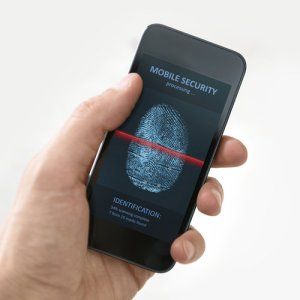
The Future of Biometric Security in Smartphones
In recent years, biometric security has become an integral part of our lives. From unlocking smartphones to accessing bank accounts, biometric authentication has revolutionized the way we protect our digital identities. As technology continues to advance at an exponential rate, the future of biometric security in smartphones looks even more promising.
1. Facial Recognition
Facial recognition technology has gained significant traction in recent years. With the help of front-facing cameras and complex algorithms, smartphones can now easily recognize and identify human faces. This biometric authentication method is gaining widespread popularity due to its convenience and ease of use.
In the future, facial recognition is expected to become even more sophisticated. Advancements in machine learning and artificial intelligence will enable smartphones to accurately recognize faces in various lighting conditions and angles. Additionally, improved algorithm training will enhance the overall accuracy and security of facial recognition technology.
2. Iris Scanning
Iris scanning is another biometric authentication method becoming increasingly prevalent in smartphones. By scanning the intricate patterns of the iris, devices can ensure maximum security as each individual’s iris is unique.
In the coming years, iris scanning technology is expected to become more accessible and affordable, allowing a wider user base to experience its benefits. Further improvements in image recognition algorithms will enhance the accuracy and speed of iris scanning, making it a compelling alternative to other biometric security methods.
3. Voice Recognition
Voice recognition has been a staple in the tech industry for quite some time. However, recent developments in machine learning and natural language processing have significantly improved its accuracy and effectiveness. With the power of Artificial Intelligence (AI) and deep learning algorithms, smartphones can now accurately identify and authenticate a specific individual’s voice pattern.
As the future unfolds, voice recognition will become an even more integral part of biometric security in smartphones. AI advancements will enable devices to recognize voices across different accents and languages, further enhancing user experience and expanding the reach of voice recognition technology.
4. Fingerprint Scanning
Fingerprint scanning has long been a widely adopted biometric security feature in smartphones. With the evolution of fingerprint sensor technology, smartphones can now capture and authenticate fingerprints with utmost precision and speed.
Looking ahead, fingerprint scanning will continue to dominate the biometric security landscape due to its accuracy and convenience. Technological advancements will further refine fingerprint sensors, making them more reliable and resistant to spoofing attempts. Additionally, innovations in ultrasonic fingerprint scanning will allow for unlocking in various screen conditions and enhance overall user experience.
5. Multi-Modal Authentication
While each biometric authentication method has its strengths, the future of biometric security in smartphones lies in multi-modal authentication. This approach combines two or more biometric methods to enhance security and accuracy.
Smartphones of the future will adopt multi-modal authentication by incorporating various combinations of biometric security methods such as facial recognition, iris scanning, voice recognition, and fingerprints. This multi-layered approach will ensure a higher level of security while providing users with flexibility and convenience.
Conclusion
As technology advances, biometric security in smartphones continues to evolve and improve. The future holds exciting possibilities for biometric authentication methods such as facial recognition, iris scanning, voice recognition, fingerprint scanning, and multi-modal authentication.
With improvements in machine learning, AI, and algorithm training, these biometric authentication methods will become more accurate, secure, and accessible to a broader user base. As a result, our smartphones will become even more reliable guardians of our digital identities, ensuring that our personal information remains protected in the ever-expanding digital world.

